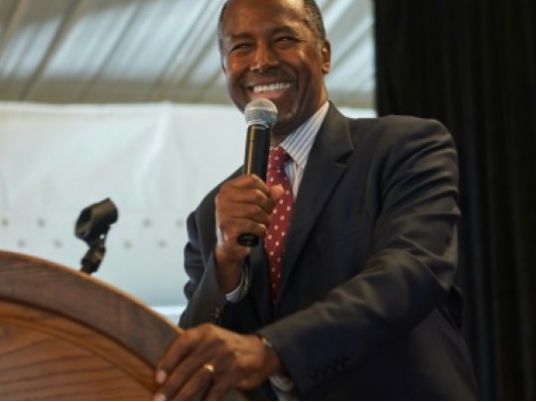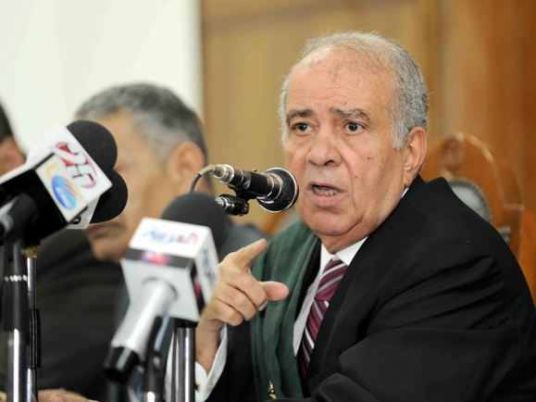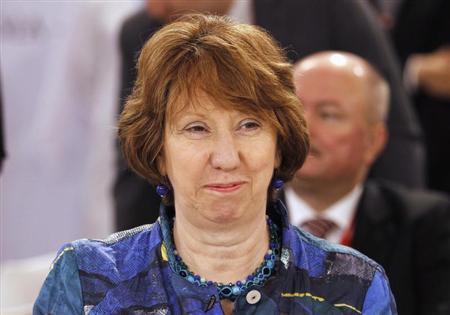For almost three decades, Mansour Hassan, a former stalwart of Anwar Sadat’s regime, remained aloof from the political arena. But today, he seems to be contemplating a glorious return with his bid for president in post-Hosni Mubarak Egypt.
Only three days before the nomination period kicked off, Hassan, 75, announced that he will engage in the brewing presidential race. Unlike Amr Moussa, former secretary general of the Arab League and Ahmed Shafiq, Mubarak’s last prime minister, Hassan is not tainted with any ties to the ousted president. Yet his candidacy is no less controversial. For several weeks, his name had echoed in political circles as the potential candidate that the military and Islamists will throw their full backing behind.
Emerging from the past
In 1937, Hassan was born to a middle-class family in Sharqiya Governorate, situated northeast of Cairo. His father had invested heavily in his education; he sent him to the elite Victoria College in Alexandria, where many Arab royals and aristocrats enrolled their children.
In the 1950s, Hassan joined Cairo University’s Faculty of Commerce, where he specialized in political science. At the time, Cairo University still had no distinct school for political science. Meanwhile, his father had established a pharmaceutical business, which attracted Hassan upon his graduation.
In the 1970s, he tapped into Egypt’s highest politics, climbing the official echelons quite fast until establishing himself as one of Sadat’s top aides. According to “I knew Sadat,” the memoirs of Sadat’s adviser, Mahmoud Gamei, Hassan found his way to Sadat’s world while the latter was looking for a young face to lead the new political party that he was about to establish. As he was shifting alliances from the Soviet Bloc to the Western American camp, Sadat had to convince his new allies that he was actually rejuvenating Egypt’s political life and embracing democracy.
Back then, Sayed Marei, one of the regime’s most influential figures, suggested Hassan, given his distinguished educational background, wrote Gamei. Sadat agreed and Hassan contributed to establishing the National Democratic Party in 1978.
“Mansour Hassan set a different model in practicing politics. He was volunteering, he was not waiting for a car from the government or a salary,” wrote Gamei, adding that Sadat developed full faith in Hassan’s political talent and eventually entrusted him with the two ministries, information and culture, in 1979.
In 1981, Sadat added to Mansour’s titles “the minister of state for presidential affairs” and gave him the right to read confidential presidential mail.
Last month, Gamei told the local press that by virtue of his new post, Hassan became aware of all top decisions. Meanwhile, Sadat had him attend his meetings with local and foreign officials. Some observers from the time had related Hassan’s quick ascent to the backing he received from Sadat’s wife, who was quite influential.
Meanwhile, Hassan’s prominence had provoked Sadat’s vice president — Mubarak — and prompted him to tender his resignation, but Sadat rejected it, according to Gamei.
In the book, published nearly 20 years after Hassan's first appointment, Gadei rememebers that Sadat turned against Hassan after a Lebanese magazine had Hassan’s photo on its cover captioned, “Egypt’s next man.” Then, Sadat was alarmed by the increasing leverage of his protege. He discharged him from his ministerial and presidential posts and demoted him to deputy speaker of the People’s Assembly. But the latter refused the new post, wrote Gamei, Shortly later, Sadat was assassinated and Hassan withdrew completely from politics.
In December 2011, his name resurfaced after the Supreme Council of the Armed Forces had appointed him president of the ad hoc and powerless Advisory Council. His frail look and toothless statements left a weak impression on many Egyptians and raised doubts about the man’s political vigor. But political experts read this weakness differently.
Becoming the man of consensus?
Hassan’s low-profile and hardly critical views on SCAF performance aroused experts’ speculations that the generals might see in him the perfect president who they could manipulate in the future.
These speculations were exacerbated by a Muslim Brotherhood-initiated campaign calling for the endorsement of a presidential hopeful “of consensus.” While the group’s leaders said their campaign aimed at putting forward a candidate that all political forces can agree upon, observers argued that the Brothers were seeking a presidential hopeful who can fulfill its expectations and those of the generals.
Meanwhile, media reports alleged that Hassan might be this “president of consensus.” Shorty after he announced that he is running, Hassan dismissed all these speculations as baseless.
“I wish there were an agreement [on my nomination]. This would have been an honor. I would feel honored by the SCAF and the Brothers’ [backing],” Hassan said in a phone interview with the widely viewed nightly news talk show Al-Qahera al-Youm last week, denying that any political deal between him on one hand and the SCAF and the nation’s most influential political organization on the other stood behind his nomination.
On the same show, he concurred that he had chosen former military officer Sameh Saif al-Yazal as his vice president — a choice that fed into fears about the military’s involvement in his candidacy.
He said he had known Yazal for a quite short period of time, adding that the latter had visited him earlier in his house along with Coptic political analyst Mona Makram Ebeid to convince him to run for president. “In this meeting, I discovered the character of Sameh Saif al-Yazal; I found that he is a serious and respectful person,” Hassan said on Wednesday night.
Three days after this praise, Yazal announced his withdrawal from Hassan’s campaign, providing no explanation. A few hours later, Hassan expressed his regret over Yazal’s withdrawal on another TV channel, contradicting his earlier statement by denying that he had taken him for a vice president in the first place. Hassan insisted that the former intelligence official was only assisting him in his electoral campaign.
This development followed reports that Salafis, the second largest bloc in Parliament after the Muslim Brotherhood, would not back him if he did not break his alliance with Yazal, widely dismissed for his ties with the old regime.
Building a constituency
On why he decided to run, Hassan said: “I felt that there has been an increasing demand [that I run] and I realized I should heed that demand.”
In recent months, a few pages appeared on the social networking site Facebook calling on Hassan to nominate himself. Yet the Facebook count of his supporters showed that he only had a few dozen.
In theory, Hassan hardly stands as a plausible candidate. Building a political constituency after three decades of silence and disengagement might be hard to conceive. In the meantime, his political past is barely known by Egypt’s young generation, which spearheaded the revolution and ousted Mubarak.
Yet if the Muslim Brotherhood decides to back him, he might be in a better position. So far, the group has declined to announce who it will endorse before the nomination period ends next month. There were earlier reports that the group could back Hassan if he decides to run.
Hassan is believed to meet the requirements the group had set for the candidate it would rally behind. Senior brothers announced on many occasions that they would not back a presidential nominee with a military background or ties with Mubarak. They also pledged not to field a nominee from within the group or even back an Islamist from outside. For experts, this not all what the group wants. They argue that the Brothers would back a civilian that the generals approve of and that is weak enough to be manipulated by Parliament.
As for secular parties, the Wafd liberal party was the first to express allegiance to the new candidate. As soon as Hassan launched his bid for president, the party held a meeting and decided to recant its previous endorsement of Amr Moussa. This sudden shift in position had elicited the stir of dozens of Wafd Party youths, who eventually forced the leadership to repeal the decision. The party’s high board and parliamentary bloc are set to convene again Monday to repeat the vote on whom to endorse. No other secular parties have expressed their position on Hassan yet.
Hassan has yet to design his platform but he pledged that if he wins, he will “safeguard the country” and “never sacrifice his own dignity or the country’s dignity.”




